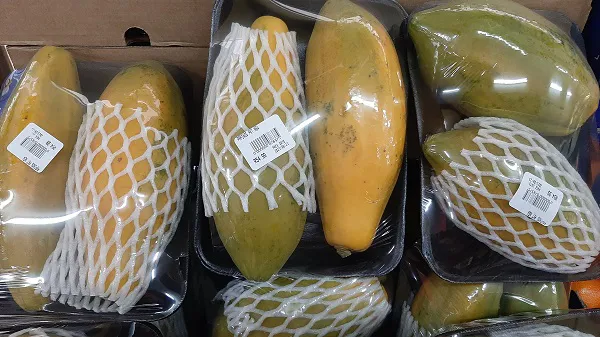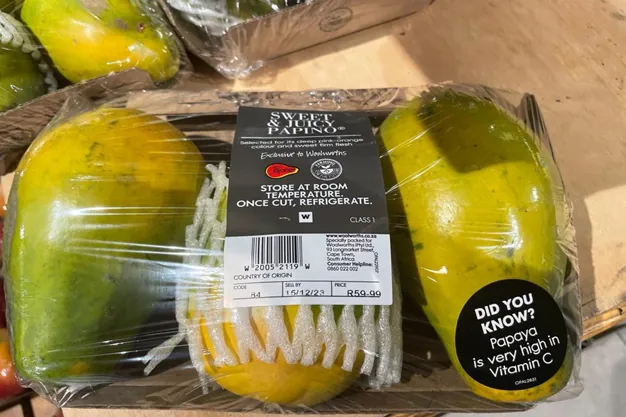Papaya is typically short in December – but never this short. In fact, adds a retail buyer, in almost two decades she’s never seen it as short-supplied as this year.
“We're battling terribly with getting papayas. There's just not enough available. We’re at our wits’ end with them. They're expecting them to recover around February but there's no guarantee."

R55 (2.8 euros) for two papayas in North West Province, August 2023
The marketing manager at one of the major papaya growers (a stable and small number; a year like this might draw more) says they send retailers just a little bit to keep them happy, and the rest which is not much, go to the municipal markets in Gauteng where, he says, they are paid R45 (2.36 euros) for a prepack unit.
Far away in Cape Town the fruit is even dearer as high transport costs - as much as R1,500 (78 euros) per pallet-load of papayas (1m by 1.2m) - reduce the amount of papayas crossing the country.
 Papayas at a high-end retailer in Cape Town today
Papayas at a high-end retailer in Cape Town today
The papaya crop is so low that they are only running the packline twice a week, he says.
“For papayas it’s been an unusually poor year and not just for us, but for everyone in the papaya industry. I think it’s been caused by climatic conditions but in truth we’re all a bit dumbstruck as to why the season’s been so bad.”
Unusually for South Africa, a lack of sunshine has been blamed for the low crop: as little as five days of full sunshine only during January 2023 in parts of Mpumalanga. Cyclone Freddy came shortly thereafter: the longest-living tropical storm in history, devastating to Malawi and Mozambique.
Supplies have been low all through the year. It’s only expected to pick up next autumn – March or April – depending on the current fruit set.
“We’re in the hands of nature. Some years the crop is so big, you don’t know what to do with it.”
